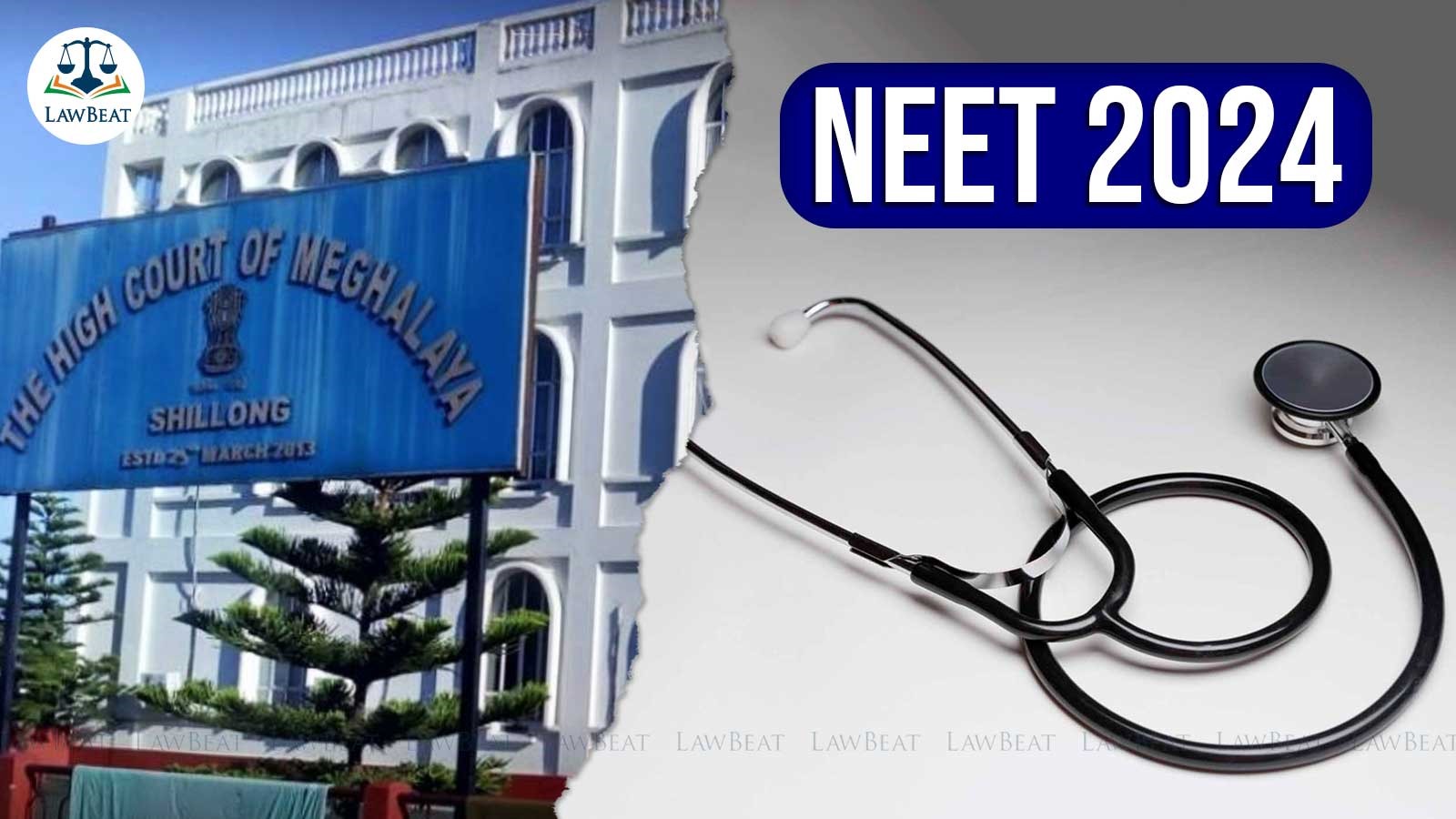Meghalaya HC Dismisses Plea for NEET UG 2024 Re-Test for Delay in Distribution of Papers

The court found that despite the lapses, corrective measures were taken to compensate for the lost time
The Meghalaya High Court has dismissed a petition seeking a re-test of the National Eligibility-cum Entrance Test (NEET) Under Graduate 2024 examination for candidates from Jowai and Nongpoh centers. The petitioners alleged confusion caused by the distribution of incorrect question papers, which led to a significant loss of time during the exam.
Acting Chief Justice H. S. Thangkhiew, presiding over the court, acknowledged that there had been confusion regarding the distribution of question papers. However, he noted that the lost time had been readjusted. The court referred to reports from the invigilators and the NEET examination authority, the National Testing Agency (NTA), which confirmed that extra time had been allowed to the candidates and that no one left the exam hall before 5:35 PM. The court found that, despite the lapses, corrective measures were taken to compensate for the lost time.
The petitioners, who appeared for the NEET UG 2024 on May 5, 2024, at the Jowai and Nongpoh centers, claimed they were deprived of the full allocated time of 3 hours and 20 minutes due to the distribution of incorrect question papers. The candidates were initially supplied with two sets of question papers, labeled as QRST and MNOP, which contained different questions. This error resulted in substantial delays as the examiners attempted to rectify the situation. In some instances, the MNOP set was replaced with the QRST set, and vice versa. The petitioners argued that this confusion cost them 40-45 minutes on average, leaving them with insufficient time to complete the exam. On May 6, 2024, the petitioners submitted a representation to the National Testing Agency (NTA) and the State Government, seeking a re-examination due to the anomalies. The request was denied, even though re-tests were granted in similar situations at other centers on June 23, 2024, as alleged by the petitioners.
The petitioners also cited the case of 1563 students who were granted a re-test option by the Supreme Court after being awarded grace marks by the NTA to support their case.
The court, however, differentiated this case from the previous instance, noting that “the lapse was detected and by the estimate of the Invigilators, and as per the NTA guidelines, additional time of 15 minutes had been allowed, and therefore, the exam instead of concluding at 5:20 PM, was allowed to continue till 5:35 PM. Further, a fact that cannot be ignored is that, all the candidates did not leave before 5:35 PM. From the sequence of events therefore, notwithstanding the lapse, in the distribution of the question papers, extra time having been allowed in both the centres and though the same alleged to be insufficient.”
The court emphasised that while there might have been a marginal difference between the time lost and the time compensated, there was no conclusive evidence showing that the delay significantly impacted the petitioners.
The court, thus, concluded that there was no violation of the petitioners’ rights and dismissed the writ petition.
Cause Title: Eleazer Vincent Lyngdoh v National Testing Agency [WP(C) No. 270 of 2024]
